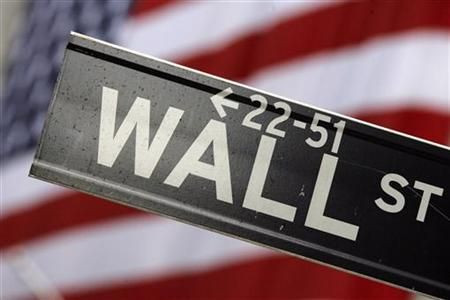Banks Benefited From Nearly $8 Trillion Bailout

While big U.S. banks assured investors they were financially healthy during the financial crisis, they also quietly approached the Federal Reserve for more bailout money, according to a Bloomberg report.
As of March 2009, the Fed committed $7.77 trillion to rescue the financial system, which is more than half the value of everything produced in the U.S. that year. The amount dwarfed the Treasury Department's better-known $700 billion Troubled Asset Relief Program, or TARP.
Claiming to be too big to fail, the banks which received these emergency loans were able to profit off the Fed's below-market rate credit and continue paying executives lucrative compensation, Bloomberg reports.
A win in court against a group representing the banks and a Freedom of Information Act request filed by Bloomberg LP revealed details of the largest bailout in U.S. history. The Fed argued that revealing borrower details would shatter market confidence in firms that accessed the discount window, therefore, making them reluctant to borrow again in the next crisis.
The 29,000 pages of Fed documents obtained under FOIA request and central bank records of more than 21,000 transactions represent a fresh narrative of the financial crisis of 2007-2009.
While Fed officials say that almost all of the loans were repaid and there have been no losses, details suggest the secret funding enabled the biggest banks to grow even bigger. These banks not only took taxpayer money to weather the storm, they also reaped an estimated $13 billion of income by taking advantage of Fed's below-market interest rates.
The so called "big six" - JPMorgan Chase & Co. (NYSE: JPM), Bank of America (NYSE: BAC), Citigroup Inc. (NYSE: C), Wells Fargo & Co. (NYSE: WFC), Goldman Sachs Group Inc. (NYSE: GS) and Morgan Stanley (NYSE: MS) - accounted for $4.8 billion of that total and this represents nearly a quarter of their net income during that time.
The massive amount of money the central bank handed out was a deeply-buried secret. According to Bloomberg, then-president of the Federal Reserve Bank of Minneapolis says he "wasn't aware of the magnitude," and unnamed sources say that even top aides to former Treasury Department head Henry Paulson were kept in the dark.
Since 2008, the nation's largest banks spent an average of over $50 million a year lobbying against government regulations, according to Center for Responsive Politics, a non-profit, nonpartisan research group based in Washington, D.C. that tracks money in politics.
Wells Fargo, which has the highest lobbying expenditures among commercial banks, spent almost $6 million year-to-date in lobbying, a 160 percent jump compared with $2 million in 2008. JP Morgan Chase, Citigroup and Bank of America spent $5.8 million, $3.8 million and $2.2 million in 2001, respectively.
© Copyright IBTimes 2024. All rights reserved.






















